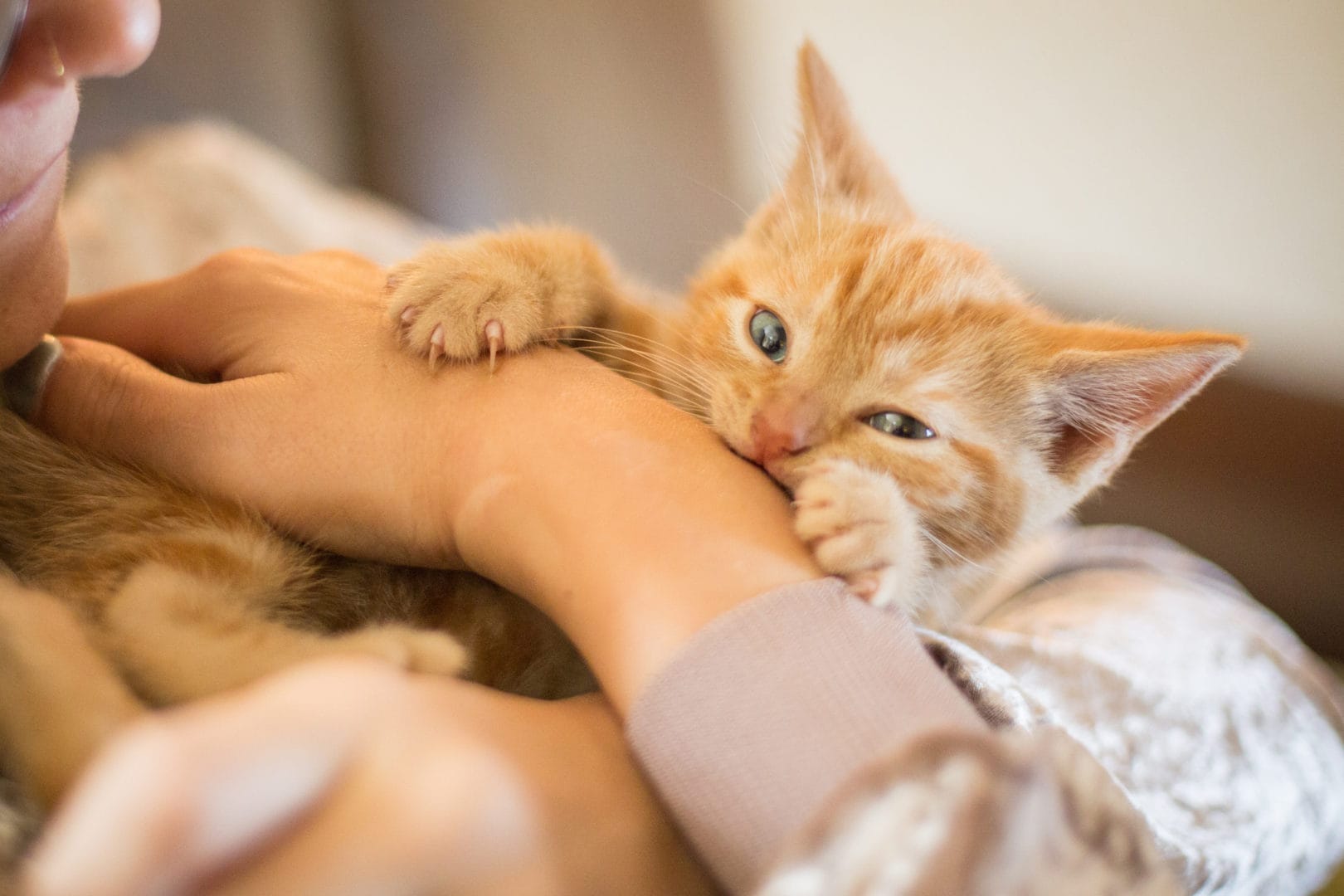Does your cat ever give you a little nibble on your arm or leg during a moment of affection? If so, you shouldn’t be concerned by this seemingly strange behavior. Your furry friend might actually be giving you a cat love bite!
Although your cat usually shows affection by purring, rubbing up against you or cuddling, they might also try to express these feelings through a friendly nibble. Here’s everything you need to know about cat love bites.
Why do cats give love bites?
Cat love bites are a form of communication, says Dr. Elizabeth Colleran, a veterinarian at Chico Hospital for Cats in California. Your cat’s instinctual nature drives them to give these little nips, especially when they feel overexcited or overstimulated. They may also be driven to engage in this behavior in moments when they feel a strong sense of bonding.
“Once we understand those subtle signs that indicate that they’re starting to get a little more aroused than we want them to be, then we can adjust our behavior accordingly.”
Dr. Elizabeth Colleran, veterinarian
But deciphering your cat’s biting can be tricky because the meaning behind it is very much dependent on the specific scenario. For instance, sometimes your cat will give you these little bites as a way to tell you that they feel tired of your petting or want you to put them down. On the other hand, they might give you a love bite during an especially vigorous play session or when they actually want you to pet them.
As such, you must learn how to decipher your pet’s actions and what they are trying to communicate to you. “We read each other’s behavioral cues all the time, so now we need to be able to read the behavioral cues that cats are telling us, but we’re just not seeing,” says Colleran. “Once we understand those subtle signs that indicate that they’re starting to get a little more aroused than we want them to be, then we can adjust our behavior accordingly.”
What to do if your cat bites you?
Unlike aggressive bites, cat love bites typically do not break the skin. Furthermore, while love bites from cats may seem playful, a real bite has a more violent undertone and may occur quite suddenly.
If your cat does end up biting you too hard or in an aggressive way, you should stop engaging in any behavior that might be upsetting them. For instance, if you’re playing or petting your furry friend at the time, you should stop doing so. If you find that this aggressive behavior continues, you should reach out to your veterinarian or an animal behaviorist for guidance on what to do next.
It’s also important that you treat a bite wound right away. “Cats have especially small teeth and that can cause an injection of bacteria deep into the skin,” explains Dr. Kate KuKanich, a professor of small-animal internal medicine at the College of Veterinary Medicine at Kansas State University. “The first thing that you should do is to wash that wound very, very well with soap and water.” Next, you should reach out to your doctor, who will examine the wound and make sure that it will not become infected.
How can you keep your kids safe from cat love bites?
Although cat love bites are not particularly unpleasant for adults, young children may perceive them as painful or frightening because they have very soft, sensitive skin. If you’re worried that your children may receive love bites from your cat, you should teach your kids how to handle their pet properly and enforce proper treatment of the cat. This will prevent them from aggravating your furry friend. You should also advise your children to avoid interacting with the family cat when they become overly excited.
Original article written by Kelly Sundstrom

